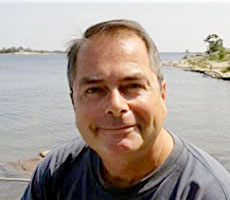Already a member? Log in to the Member Site at members.mastery.org.
MTC Webinars on Higher Ed & More
April 22, 2020Podcast: Mastery Transcript Update
May 11, 2020Transforming Assessment, Curriculum, and Beyond

Assessment and analysis by professional auditing consultant concept, person touching screen with icons of risk evaluation, business analytics, quality compliance, process inspection, financial audit

Greg Curtis, author and expert in school change, recently participated in MTC's Online Member Symposium, delivering two sessions on assessment, designing qualitative learning goals, and reframing the learning environment. The following post is the first in a forthcoming series and addresses the shifts needed to transform learning in order to subsequently change the transcript.
I have been a fan of Mastery Transcript Consortium for a few years now. In April I was fortunate enough to participate in MTC's Online Member Symposium, delivering two sessions to some great schools and educators. I am also lucky enough that MTC has provided me with some space (this space, in fact) for a series of blogs where I can share my thoughts about some of the major shifts that, together, support transformation towards a mastery-based school.
Too often we can reduce both the challenge and opportunities of such a move into simplistic implementation steps and a more linear, technical view of change. I hope that this series helps you and your colleagues to dig deeply into the shifts needed, not just to change a transcript, but to transform learning.
Mastery Transcript Consortium’s efforts to clear the log jam of an antiquated college admissions process is big news. Efforts to modernize teaching and learning in schools have been stymied by the narrow measures of successful learning represented in traditional transcripts. In my work to help schools transform themselves, I invariably hear schools, especially high schools, say that they’d love to change but can’t since “all colleges and universities will accept” is a GPA calculated through simple grading practices and SATs.
MTC’s work at dismantling this reductive practice is extremely important to education reform. It is hard to argue with the organization’s “Theory of Action” and the movement is generating much excitement. However, many schools see promise in this shift without realizing the work needed to change what and how we learn “upstream” of the transcript. In order to truly be able to present the Mastery Transcript, we really need to first become mastery schools. This involves adaptive change as opposed to simply reformatting the output of a traditional environment
Journey to Mastery
The five steps included in MTC’s "Journey to Mastery Learning” recognize the multi-phased process of the adaptive change implicit in shifting to the Mastery Transcript. Schools need to work through the “why” (Purpose and Vision) and the “what” (Graduate Profile) in order to create the foundation for successful transformation.But I have experienced that the most challenging aspect of this journey is in moving towards, and implementing the “how” (Learning Model, Alignment and Sustainability). The Mastery Transcript does not simply appear at the end of a student’s high school career. It cannot be meaningfully achieved by simply translating an existing process and product into a new “language” for transcripts. Real transformation is required across all systems of learning and teaching in order to achieve the true goal; we cannot simply put old stuff into new boxes.
This requires adaptive change within complex environments. Turning a screw here and adding a widget there has been tried many times ... and always fails to truly transform. Change leaders and their collaborators should become adept at understanding the interplay between different elements of the teaching and learning environment. Each has a role to play and no one shift can do the job on its own. There is no silver bullet for meaningful transformation. Below is an outline of some of the interrelated shifts I would like to explore in this series on assessment, following on my recent online sessions with a range of engaged MTC member schools.
Mastery Domains: The Foundation for Transformation
The selection and organization of Mastery Credits and Domains is an essential step in reframing your learning environment. Clearly articulating these learning goals will allow them to be operationalized to become drivers of change.
Assessment Challenged: Moving from Measurement to Feedback
It’s not simply a matter of “wanting” to change how we assess (we’ve tried that for years), but of truly not being able to assess learning the way we used to. If we can’t do what we’ve done in the past, what do we do now?
Qualitative Assessment: Tackling the Tough Stuff
One of the real positives about a move to Mastery learning is the space it opens up for the inclusion of transdisciplinary and qualitative learning goals that have historically taken a back seat to academic standards. However, herein also lies a challenge.
Intentionality: Tools and Strategies
I’ve observed that schools, with the best of intentions, will often act as if students could achieve new learning goals solely on their own. With the right design, this can be partially true, but we can’t assume that students will acquire and develop complex skills and dispositions through osmosis. They need more from us.Curriculum Development: Becoming an Experience Designer
This is a big topic, especially when we combine movement towards self-directed learning with a mastery focus and the combined effect on traditional curriculum development. I will focus on shifts in curriculum design that focus on our fundamental role in that process.
Leadership: Moving Beyond the TechnicalThere are a million books out there on leadership. I simply want to highlight a couple of shifts that I have seen that have made the difference between success and failure or failure and success. Leaders need to truly understand the nature of transformation before they suit up for the challenge.
So, this is the plan. I hope that you will come back to engage in some thinking around areas that are important to you and your context. I also hope that you will add to the dialogue. And, if you have any suggestions, please feel free to send them to me at greg@gregcurtis-consulting.ca.
Looking forward to engaging with you!



